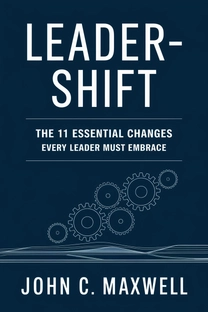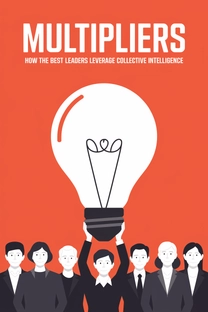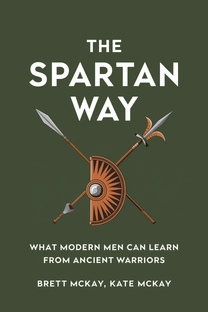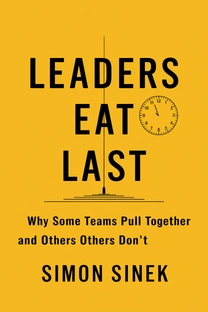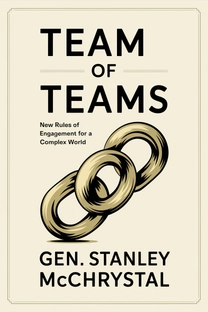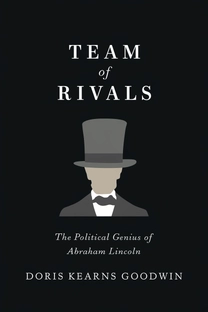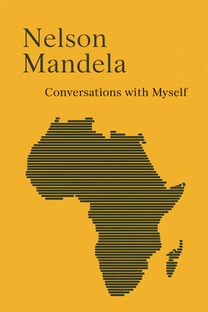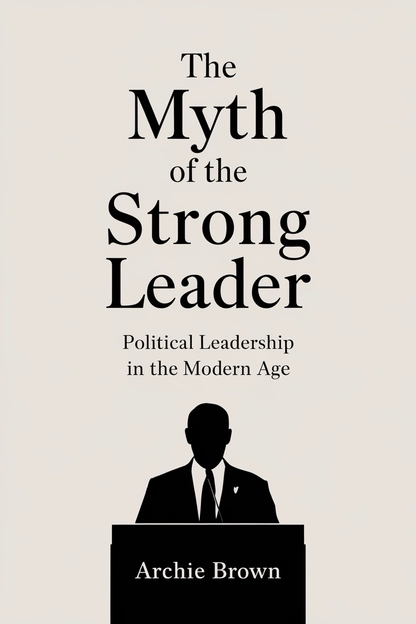
The Myth of the Strong Leader
Political Leadership in the Modern Age
by Archie Brown
Brief overview
This book explores why individuals often look to strong, dominant politicians and how this can lead to both effective governance and serious abuses of power. It examines historical and modern examples, explaining the distinction between leadership that is genuinely transformative and leadership that simply projects an image of strength. By reading it, you will gain insight into the complexities behind political authority and the dangers of entrusting too much power to a single figure.
Introduction
Leadership holds a magnetic appeal for most societies, fueling hopes of stability and prosperity. Yet the promise of a single individual who can “get things done” often overlooks the deeper complexities of governing. Modern history is scattered with leaders who claimed extraordinary powers, sometimes producing impressive short-term gains but also triggering damaging conflicts.
This book begins by asking why people are drawn to strong figures—why the image of a decisive leader seizing the reins is so appealing. It challenges the assumption that power, once concentrated, will be used wisely. Instead, it reveals how unchecked authority can produce errors in judgment, encourage cults of personality, and even undermine national interests.
A key theme is the contrast between appearances and actual outcomes. While some leaders revel in rhetoric or military displays, others focus on negotiation, institutional strength, and methodical governance. Over time, collective leadership may yield more consistent progress than concentrated personal rule.
Through historical examples—from revolutions to modern democracies—this opening section sets the stage for a closer examination of power: why it’s sought, how it shapes decision-making, and the consequences of romanticizing the so-called ‘strong leader.’
The Myth of Strength
Modern politics in many countries is steeped in the language of toughness. Leaders are alternately praised or attacked for being strong or weak, reinforcing the idea that steeliness is automatically a virtue. This has become a shorthand in campaigns, where critics and candidates alike deploy labels in hopes of swaying voters’ emotions.
Yet the designation of ‘strong leader’ is often an oversimplification. It privileges theatrical shows of resolve—public announcements, forceful stances—over nuanced policymaking. The myth thrives on the notion that one decisive person can solve complex challenges if only granted enough power.
When leaders portray themselves as all-powerful arbiters, they risk sidelining capable advisors. In democracies, the push for more personal authority can marginalize cabinet colleagues, legislative bodies, and broader public debate. In authoritarian regimes, it can further entrench corruption and fear.
This chapter peels back the hype to show that outcomes seldom match the lofty claims of the so-called strongman. What emerges is a cautionary lesson: bold rhetoric can overshadow the fine details of governance, ultimately leaving societies more vulnerable.
What is The Myth of the Strong Leader about?
"The Myth of the Strong Leader: Political Leadership in the Modern Age" by Archie Brown delves into the intricate dynamics of political leadership, challenging the conventional admiration for dominant figures in governance. Through a historical lens, Brown painstakingly dissects the allure and potential dangers of concentrating power in the hands of a single leader, contrasting it with the effectiveness of cooperative and inclusive decision-making. The book is a compelling narrative on interpreting leadership beyond the facade of strength, highlighting the potential pitfalls of centralizing authority.
\nThe book draws on examples spanning from authoritarian regimes to modern democracies, offering insights into how political myths are created and sustained. Readers are encouraged to reevaluate the concept of strong leadership and look beyond charismatic personalities to understand the true drivers of enduring progress and stability. This timely analysis reveals that, in many cases, collaborative approaches foster more sustainable and democratic governance than traditional views of leadership.
\nThe importance of reevaluating what makes a leader "strong" is underscored throughout the book. In doing so, "The Myth of the Strong Leader" advocates for a paradigm shift towards appreciating the nuanced, often subtle traits that make leaders genuinely transformative. These include humility, the willingness to listen, and prioritizing strategic collaboration over unilateral decisions.
Review of The Myth of the Strong Leader
"The Myth of the Strong Leader" by Archie Brown is an incisive critique of the widespread idolization of political figures who project robust, unyielding authority. One of its key strengths lies in dissecting the misconceptions surrounding leadership and illuminating the discrepancies between the charismatic veneer and the reality of governance. Brown adeptly illustrates the practical benefits of adopting a more balanced and collaborative political approach, which often surpasses the singular pursuit of control.
\nBrown's eloquent writing style is both accessible and intellectual, managing to cater to a diverse audience. He weaves historical and contemporary case studies to highlight how real change often stems not from sheer force, but from inclusive leadership practices. His discerning analysis is pertinent for understanding how myths around leadership influence both policy-making and public perception. He expands on how leadership should not be synonymous with power concentration but rather with fostering institutions that cultivate diverse viewpoints.
\nUltimately, "The Myth of the Strong Leader" is a compelling read for anyone interested in the interplay between political power and societal progress. Brown offers a refreshing perspective, emphasizing that impactful governance is best achieved through collaboration rather than the centralization of power. For readers yearning to understand how systems can sustain democratic values, this book is an enlightening and thought-provoking recommendation.
Who should read The Myth of the Strong Leader?
- Political Science Enthusiasts: Readers invested in understanding the nuances of political authority and governance will find this book a treasure trove of insights into historical and contemporary political landscapes.
- Students of Leadership: Those pursuing studies in leadership or governance will benefit from the critical examination of leadership myths, understanding the implications of concentrated versus shared power.
- Historians: With a strong focus on historical examples, the book provides historians with a deep dive into the outcomes of various leadership styles across different eras and regions.
- Policy Makers: Individuals involved in governmental or organizational policy-making can glean lessons on the effectiveness of inclusive decision-making over authoritarian approaches.
- General Public with Interest in World Events: Anyone intrigued by the world’s political climate and its leaders can gain a richer perspective on how leadership myths influence global and local events.
About the author
Book summaries like The Myth of the Strong Leader
Why readers love Mindleap
10-Minute Book Insights
Get the core ideas from the world's best books in just 10 minutes of reading or listening.
Curated For You
Discover your next favorite book with personalized recommendations based on your interests.
AI Book ExpertNew
Chat with our AI to help find the best book for you and your goals.
Reviews of MindLeap
Love how I can get the key ideas from books in just 15 minutes! Perfect for my busy schedule and helps me decide which books to read in full.
Alex R.
The summaries are incredibly well-written and the audio feature is perfect for my commute. Such a time-saver!
Jessica M.
Great app for personal growth. The insights are clear and actionable, and I love how they capture the essence of each book.
Chris P.
The app is beautifully designed and the summaries are top-notch. Definitely worth every penny!
Sarah K.



